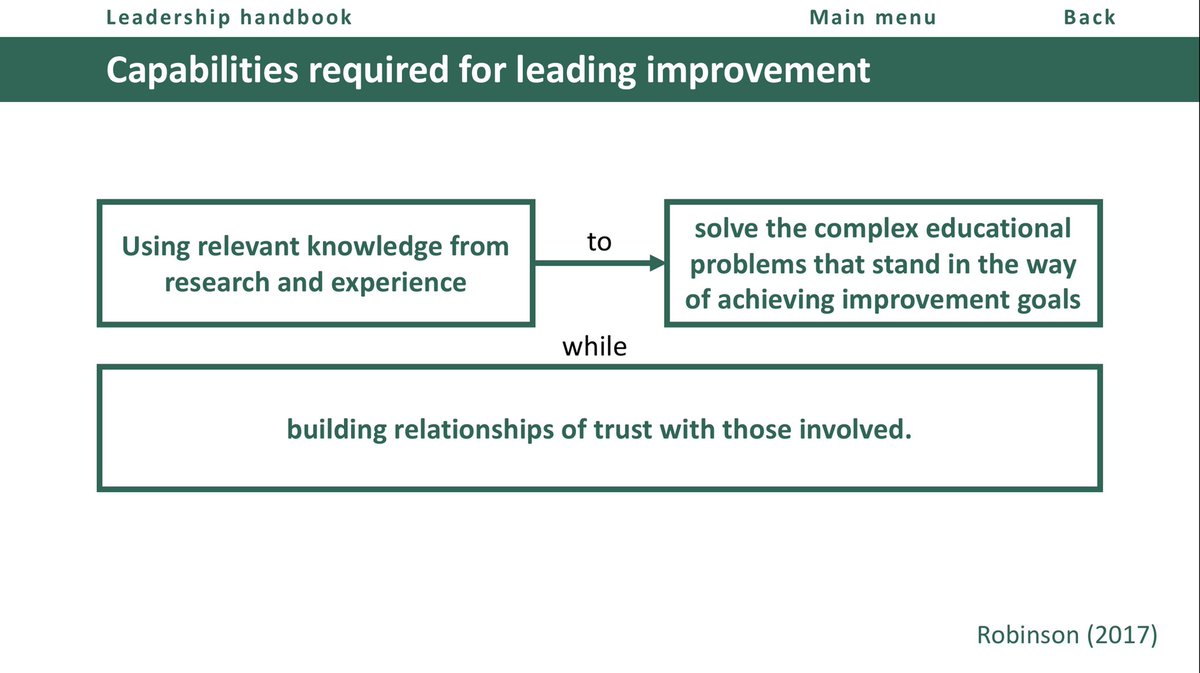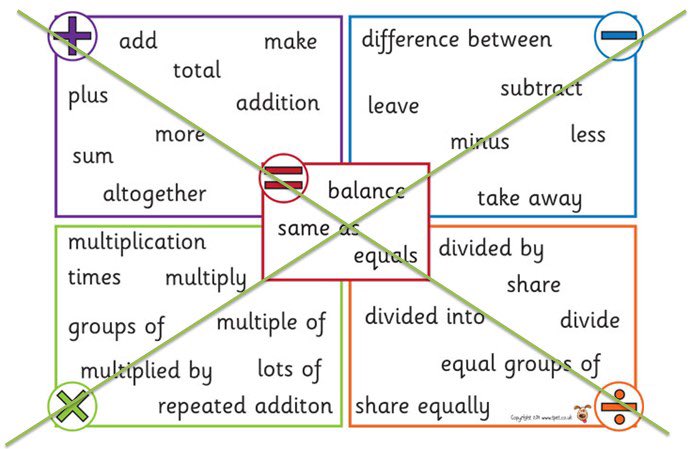
Some more thoughts on quality assurance / monitoring…
🧵
1/23
🧵
1/23
Think of any monitoring activities as one of three layers:
1️⃣ Checking understanding of purpose
2️⃣ Overview activities
3️⃣ Depth activities
2/23
1️⃣ Checking understanding of purpose
2️⃣ Overview activities
3️⃣ Depth activities
2/23
1️⃣ Checking understanding of purpose
Leaders need to first set out what is important, why and a framework for colleagues to act in an aligned way.
mrnickhart.wordpress.com/2022/02/18/pur…
3/23
Leaders need to first set out what is important, why and a framework for colleagues to act in an aligned way.
mrnickhart.wordpress.com/2022/02/18/pur…
3/23
Before checking on what teachers do or what children learn, it is well worth checking the extent to which the message has been understood and then intervene with conversations to refine collective thinking.
Responsive teaching for staff.
mrnickhart.wordpress.com/2022/01/11/for…
4/23
Responsive teaching for staff.
mrnickhart.wordpress.com/2022/01/11/for…
4/23
When?
Team meetings are an important driver of school improvement for this very reason.
Opportunities to listen to how colleagues talk about their work and then respond with the aim of improving collective understanding happen every day.
mrnickhart.wordpress.com/2022/07/04/tea…
5/23
Team meetings are an important driver of school improvement for this very reason.
Opportunities to listen to how colleagues talk about their work and then respond with the aim of improving collective understanding happen every day.
mrnickhart.wordpress.com/2022/07/04/tea…
5/23
Checking for understanding of purpose is made easier if there are systems that enable it.
Team meetings are one.
Arguably the most important system is the curriculum.
Coherence here makes it so much easier to check others’ understanding of it.
mrnickhart.wordpress.com/2022/02/10/cur…
6/23
Team meetings are one.
Arguably the most important system is the curriculum.
Coherence here makes it so much easier to check others’ understanding of it.
mrnickhart.wordpress.com/2022/02/10/cur…
6/23
2️⃣ Overview activities
The woods, not the trees.
This requires restraint; restraint from diving in to look at specifics.
We’re looking for patterns here and in order to do that, the goal has to be to walk the school every day, at different times of the day.
7/23
The woods, not the trees.
This requires restraint; restraint from diving in to look at specifics.
We’re looking for patterns here and in order to do that, the goal has to be to walk the school every day, at different times of the day.
7/23
Visit every classroom and to speak to every colleague.
Notice what is happening at scale.
We might take notice of the climate - how colleagues are feeling about the work they’re doing and how they are interacting with each other.
8/23
Notice what is happening at scale.
We might take notice of the climate - how colleagues are feeling about the work they’re doing and how they are interacting with each other.
8/23

We might take notice of systems - are the systems that we have designed being used and do they seem to be working?
Have they evolved in any way and does this seem to make them better or worse?
9/23
Have they evolved in any way and does this seem to make them better or worse?
9/23

We might take notice of common behaviours amongst colleagues. Are they doing the kind of things that might help realise our purpose, or build on our strengths, or address our areas for improvement?
10/23
10/23

We might take notice of what colleagues appear to know through the decisions that they make and the interactions that they have with children.
11/23
11/23

Or we might take notice of how children are doing generally. Do they seem happy? Do they seem to feel safe? Do they seem to be enjoying school?
12/23
12/23

It is important for overview activities that we avoid the temptation to make judgements about how good something is or fall into the trap of assigning cause to effect.
The symptoms we see will not have a single cause because schools are complex.
mrnickhart.wordpress.com/2022/03/03/the…
13/23
The symptoms we see will not have a single cause because schools are complex.
mrnickhart.wordpress.com/2022/03/03/the…
13/23
The result of overview activities is that we develop a hunch - figure out what we need to pay more attention to either because it seems to be a strength which is worth trying to understand more fully or it seems to be a weakness that needs addressing.
14/23
14/23
And hunches are not absolute judgements - they need testing out!
The goal is a fuller understanding, not ‘finding evidence that supports my viewpoint’.
15/23
The goal is a fuller understanding, not ‘finding evidence that supports my viewpoint’.
15/23
3️⃣ Depth activities
Testing out our hunches.
For this we need multiple viewpoints because we all have bias and our own unique prior knowledge makes us see things in different ways.
16/23
Testing out our hunches.
For this we need multiple viewpoints because we all have bias and our own unique prior knowledge makes us see things in different ways.
16/23
We have to appreciate that any hunches will likely manifest differently in different year groups, in different classes, on different days and at different times.
So when we observe lessons or talk to children, this context needs to be taken into consideration.
17/23
So when we observe lessons or talk to children, this context needs to be taken into consideration.
17/23
Spotting good teaching is troublesome - see this from @ProfCoe: cem.org/blog/414
To get anywhere near reliable or valid judgements, it takes multiple observers, multiple observations over a long period of time with explicit criteria.
18/23
To get anywhere near reliable or valid judgements, it takes multiple observers, multiple observations over a long period of time with explicit criteria.
18/23
This is a tough pill to swallow for us leaders who have worked schools for years!
What can we do?
Well first we can accept that if we think something is good, it probably because it is familiar to us or matches our preferences.
19/23
What can we do?
Well first we can accept that if we think something is good, it probably because it is familiar to us or matches our preferences.
19/23
The second is to make sure we know about poor proxies for learning:
teacherhead.com/2021/07/12/poo…
20/23
teacherhead.com/2021/07/12/poo…
20/23

Perhaps instead, we reject making judgements at all and just work on seeking to improve what we see, regardless of how effective it might be.
Maybe the depth stage of QA should be developmental instead of evaluative, both for teachers and leaders.
21/23
Maybe the depth stage of QA should be developmental instead of evaluative, both for teachers and leaders.
21/23

Quality assurance should be about building our knowledge so that we can make improvements.
We can build our knowledge at three layers:
1️⃣ Checking collective understanding of purpose
2️⃣ Overview activities
3️⃣ Depth activities
22/23
We can build our knowledge at three layers:
1️⃣ Checking collective understanding of purpose
2️⃣ Overview activities
3️⃣ Depth activities
22/23

If you found this interesting, you’ll love #ImpactBook - out now!
mrnickhart.wordpress.com/impactbook/
23/23
mrnickhart.wordpress.com/impactbook/
23/23
• • •
Missing some Tweet in this thread? You can try to
force a refresh















